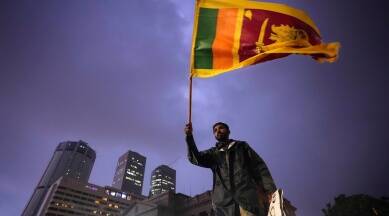Sri Lankan govt asks citizens abroad to send home cash
By Lokmat English Desk | Updated: April 13, 2022 15:07 IST2022-04-13T15:06:03+5:302022-04-13T15:07:03+5:30
Sri Lanka urged its citizens overseas to send home money to help pay for desperately needed food and fuel ...

Sri Lankan govt asks citizens abroad to send home cash
Sri Lanka urged its citizens overseas to send home money to help pay for desperately needed food and fuel Wednesday after announcing a default on its $51 billion foreign debt. Central bank governor Nandalal Weerasinghe said he needed Sri Lankans abroad to "support the country at this crucial juncture by donating much needed foreign exchange". His appeal came a day after the government announced it was suspending repayments on all external debt, which will free up money to replenish scant supplies of petrol, pharmaceuticals and other necessities.
Weerasinghe said he had set up bank accounts for donations in the United States, Britain and Germany and promised Sri Lankan expatriates the money would be spent where it was most needed. Weeransinghe's appeal has so far received lukewarm response. from Sri Lankans abroad. "We don't mind helping, but we can't trust the government with our cash," a Sri Lankan doctor in Australia told AFP, asking for anonymity. A Sri Lankan software engineer in Canada said he had no confidence that the money would be spent on the needy. "This could go the same way as the tsunami funds," he told AFP, referring to millions of dollars the island received in aid after the December 2004 disaster, which claimed at least 31,000 lives on the island. Much of the foreign cash donations meant for survivors was rumoured to have ended up in the pockets of politicians, including current Prime Minister Mahinda Rajapaksa, who was forced to return tsunami aid funds credited to his personal account. Rajapaksa on Wednesday offered to hold talks with the agitators who are demanding the resignation of President Gotabaya Rajapaksa and all members of his family from the government. The protests entered their fifth day on Wednesday and since they began on Saturday, it was carried out round the clock by youths demanding a total transformation of the "corrupt political culture", which they claim has been prevailing in the island nation since it gained Independence from Britain in 1948.
Open in app